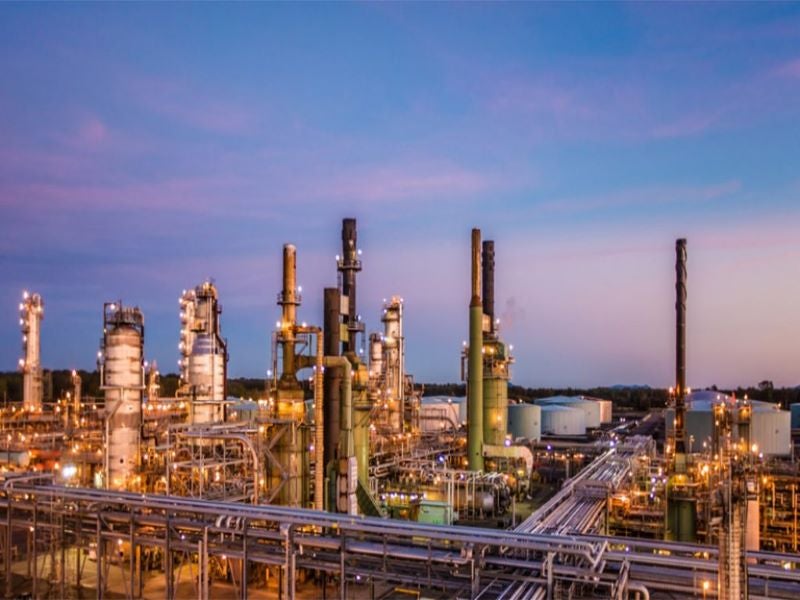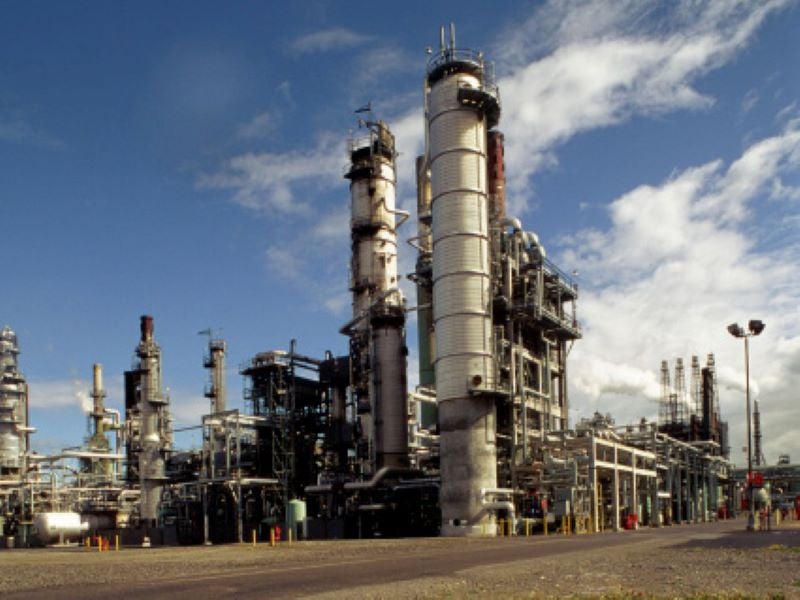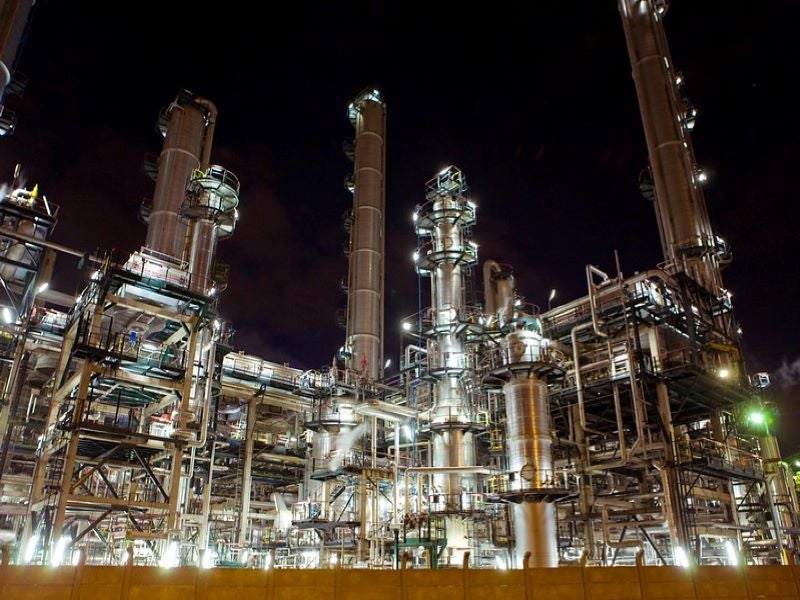The Cherry Point refinery located in Blaine is the biggest oil refinery in Washington and the third biggest refinery on the US West Coast.
British multinational oil and gas company BP owns and operates the refinery, which has been operational since 1971. BP (formerly BP Amoco) took control of the refinery by acquiring Atlantic Richfield Company (ARCO) in 2001.
The Cherry Point refinery was originally designed to process 100,000 barrels of Alaska North Slope crude oil a day, but can now process a variety of crude, including heavy Canadian oil. The refinery’s crude distillation capacity has been expanded to 251,000 barrels a day (bpd) with a Nelson Complexity Index of 10.
BP announced to invest £198.5m ($269m) on three key projects to improve refinery efficiency, reduce carbon dioxide emissions and more than double renewable diesel output of the Cherry Point refinery in October 2021. The investment is in line with BP’s target to achieve net zero emissions across its operations and halve the carbon intensity of its products by 2050.
The three projects at the refinery include the £124.7m ($169m) hydrocracker improvement project (HIP), the £40.6m ($55m) cooling water infrastructure (CWI) project, and the £33.2m ($45m) renewable diesel optimisation (RDO) project.
Cherry Point refinery location and feedstock details
The Cherry Point refinery facility occupies approximately 3,300 along the Strait of Georgia, in Blaine, Whatcom County, Washington, in the Pacific Northwest, US.
The refinery processes Canadian oil, as well the crude from North Dakota and Alaska North Slope.
Refinery processes and product details
The key processing units at the Cherry Point oil refinery include a 139,000bpd vacuum distillation unit, a 65,000bpd hydrocracking unit, a 65,000bpd catalytic reforming unit, as well as a 102,000bpd hydrotreating unit for gasoline and naphtha, a 79,000bpd hydrotreating unit for jet fuel and distillates , and a 62,000bpd coker unit.
A 25,000bpd ultra-low sulphur diesel hydrotreating unit and a hydrogen unit capable of producing 44 million cubic feet (Mcf) of hydrogen a day were also commissioned at the refinery in May 2013.
The refinery products include petrol, diesel, jet fuel, and other specialty products such as anode-grade calcined coke, which is sold to aluminium smelters.
The Cherry Point refinery is the biggest supplier of jet fuel to the Seattle, Portland and Vancouver international airports.
Cherry Point hydrocracker improvement project
The hydrocracker improvement project (HIP) is intended to improve the refinery’s efficiency and reduce planned maintenance. The £124.7m ($169m) project will also cut down on flaring and unit shutdowns.
Hydrocracking involves processing heavy oils at high temperature and pressure in the presence of hydrogen to produce petrol, diesel and jet fuel.
Improvement to the Cherry Point refinery’s hydrocracker unit will result in less consumption of hydrogen and lower heat input.
The hydrogen used by the hydrocracker unit is produced by conversion of natural gas at the refinery, which causes CO2 emissions. Hence, lower hydrogen consumption by the hydrocracker will result in lesser CO2 emissions.
Work on the hydrocracker upgrade is expected to begin by the end of 2021 and be completed in 2023.
Cooling water infrastructure upgrade at Cherry Point refinery
The cooling water infrastructure (CWI) project will upgrade the cooling water system of the refinery with an estimated investment of £40.6m ($55m).
The project is intended to improve utilisation and energy efficiency of the refinery’s cooling towers allowing the refinery to maintain an optimum cooling water temperature throughout the year.
The CWI project, together with the hydrocracker improvement project, is expected to reduce CO2 emissions of the refinery by 160,000 tonnes (t) a year.
Works on the CWI project will also commence in 2021 and are slated for completion in 2023.
Expansion of renewable diesel production capacity
The £33.2m ($45m) renewable diesel optimisation (RDO) project is expected to increase the refinery’s renewable diesel production capacity by more than 100% to 2.6 million barrels a year. The project is expected to be completed in 2022.
The Cherry Point refinery became the first refinery in the Pacific Northwest to start co-processing biomass-based feedstock along with conventional petroleum feedstock in a diesel hydrodesulfurisation (DHDS) unit in January 2018.
The DHDS unit at the Cherry Point refinery processes biomass-based feedstock such as vegetable oils and rendered animal fats. This fuel produced through co-processing at the refinery is chemically identical to petroleum diesel.
The RDO project will increase the renewable fuel processing capacity of the DHDS unit from 2,900bpd to 7,250bpd.
Contractors involved in Cherry Point refinery upgrade
Sypris Technologies, a subsidiary of Sypris Solutions, was contracted to supply specialty high-pressure closures for the Cherry Point refinery renewable diesel optimisation project in June 2021.
Sypris Technologies’ Tube Turns® Tool-less® closures are selected for filtration systems to upgrade the Cherry Point refinery.
Matrix Service has been engaged as the maintenance contractor for BP’s Cherry Point refinery since 2003.





